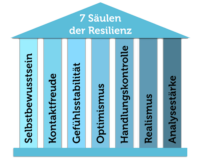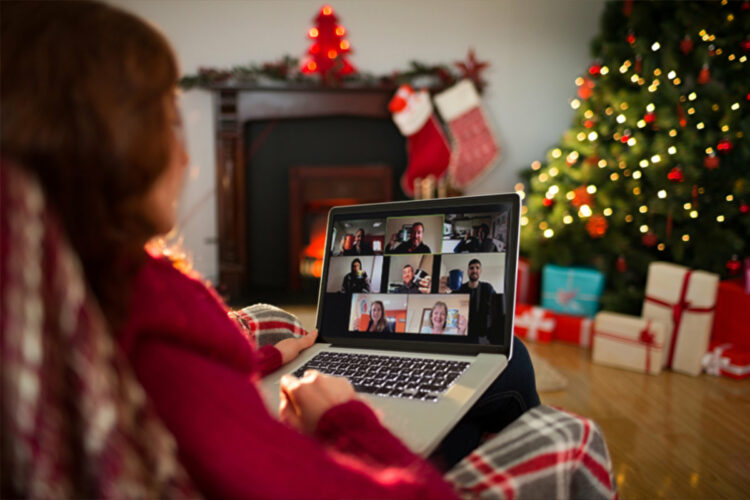
1 1/2 years Corona – An interview with René Wittek
Who is René Wittek?
René Wittek is one of the two managing directors of Spielgestalter and a trained psychologist. The teambuilding agency is dedicated to helping companies strengthen their teams. Before founding Spielgestalter, René worked for more than 10 years as an independent coach to sensitize and strengthen people in conflict situations. In this “mission”, just as with the Spielgestalter now, he showed full heart and soul, as it is a calling for him to help people in their development.

Question: What challenges are companies currently facing?
RW: In addition to physical health, companies should also keep an eye on mental health. However, this is more difficult because there is no legally prescribed hygiene concept for this. Unfortunately, it is still the case that although we know how important mental health is for people and employees, there are no regulations or rules governing the duty of care of companies in this regard.
Question: What can companies do anyway?
RW: In order to understand this, we first have to take a look at what currently constitutes the mental stress of people in general. Only then can managers consider how they can support their employees.
Surveys show that the pandemic situation is perceived as very stressful by most people. This is not surprising, of course, as the current situation shows us how vulnerable we humans, our society and our economy actually are. In recent decades, we in Germany have not had to weather any serious crisis. This has led us to perceive our society, our economy, our relationships and ultimately ourselves as more or less invulnerable. In the current situation, however, we tend to question this invulnerability. People now tend to fear for their own health and that of their family members. Above that, short-time work or even job loss cause financial worries. In short, many people perceive the current situation as the biggest crisis they have had to weather so far, which creates fear, worry, stress and anxiety.
According to a WHO study, this can lead to, among other things, “loneliness, depression, and harmful alcohol or drug use.” So the current situation quite acutely threatens the mental health of many people. Now we know from medicine and psychology that resilience, i.e. psychological resistance, helps to survive situations like the one we are in right now with less harmful consequences.
This resilience resides, in varying degrees, in each of us. (Of course, this resource is not stable and can be expressed differently at different stages of life).
So ideally we have a strong psychological resilience right now – at least we should try to strengthen it. Now we know that especially social relationships can support and strengthen resilience. And here we are in a dilemma, because we are currently asked to reduce social contacts. Of course, we could also maintain our private social contacts in a virtual way, but surveys show that we seem to find it more difficult to maintain our social contacts at the moment. In personal conversations, I have heard from many people that work colleagues are the only social interactions that exist at the moment, because these relationships must be managed in the interests of the company, as they are essential for work processes.
However, these relationships are not voluntarily chosen, as is the case with friendly relationships, for example. In addition, these interactions are mostly shaped by work content and thus cannot replace our other social relationships and interactions.

Question: How does this insight help supervisors to promote mental health?
RW: Companies can ensure that work colleagues are given regular opportunities to interact socially with each other, strengthening team chemistry. When individual workers feel part of a team or the support of colleagues, are given the opportunity to interact socially with each other, the feeling of loneliness is reduced. On the one hand, this can directly counteract the problem of isolation, but on the other hand, it also conveys the feeling that one is not at the mercy of the situation alone, but receives support from colleagues.
From our point of view, this has 2 advantages for companies:
A strengthened team chemistry promotes the mental health of individuals
team performance can be increased, as groups work more efficiently under these circumstances. For example, in a group with good team chemistry, individuals are more willing to take an “extra step” for their colleagues.
Question: That sounds good in theory, but in practice, companies in various industries are currently facing an uncertain future. Isn’t it understandable that they are saving their resources at the moment and not spending money on virtual team events?
RW: It seems understandable only from the point of view that we individuals tend to be thrifty in times of crisis and hope for a better future. However, from a business perspective in particular, it is unfavorable to bury our heads in the sand and hope for better times. Let’s imagine employees who work in a company where the feeling is conveyed that the future of the company is so uncertain and that savings are the only means to secure a possible future. Basically, this can increase the fears and worries described at the beginning, which has a negative impact on mental health. On the other hand, it could also lead employees – especially if they consider themselves high performers – to look for another employer. Incidentally, employees with such a self-image also have a higher level of resilience. To put it provocatively, this could mean that in such a company, employees who consider themselves to be lower performers and have lower resilience will stay with the company because they do not believe they will find a job with another employer. In contrast, employees who consider themselves high performers might leave the company.
A completely different aspect is that the workforce is currently a very important, if not the most important, resource for companies. Employers demand a lot from their employees, especially in the home office: Flexibility in working hours, concession in scheduled salary negotiations, etc. Employees want this to be seen and appreciated – regular opportunities to spend time with colleagues – even if it is only virtual – can be a favorable form of recognition.
Question: Nevertheless, there has to be money for a virtual team event…
RW: Such social interactions don’t have to cost a lot of money and can also be organized yourself. There is now a wide range of possibilities. The company’s minimum investment is simply the employees’ working time.
Question: How are your team events received by the participants?
RW: At the beginning of the pandemic, some participants were skeptical about whether team events could be held online at all. Afterwards, these participants were very surprised how well virtual team events work and how much fun they are.
Towards the end of last year, we had many events with groups that were already doing their second or third event with us. We heard from these participants that they were looking forward to meeting their colleagues at these events weeks in advance and having fun with them, laughing together and simply having a good time together.
In the meantime, we have many events where the participants have not yet met each other in real life and have only gotten to know each other virtually. They report back that the events are an important part of growing together as a team.
Question: It sounds like the events are pure fun?
RW: All our measures promote communication, empathy and social relationships. In addition, depending on the format, other topics such as cross-departmental cooperation, leading without disciplinary responsibility, bringing together new organizational units, etc. are dealt with. However, we believe that this content is better accepted by the participants if it is experienced in a fun and enjoyable way. This is also the reason why we decided to use play as a method in our measures right from the start of our company. Fun and joy is firmly anchored in the DNA of the game designers and, in our eyes, an important building block for the successful implementation of team events.
Question: If you take a look into the future, what do you think the Corona pandemic will change in the long run?
RW: Executives are currently seeing that home office works, companies are finding that it can save costs: Home office will also play a role after Corona. My wish is that part of the savings will be invested in workplace health promotion for employees. In terms of sustainable employee care, companies also benefit.
You still have questions or need individual advice?
Just give us a call, we are happy! You will receive answers and individual proposals from us that fit you and your ideas!



